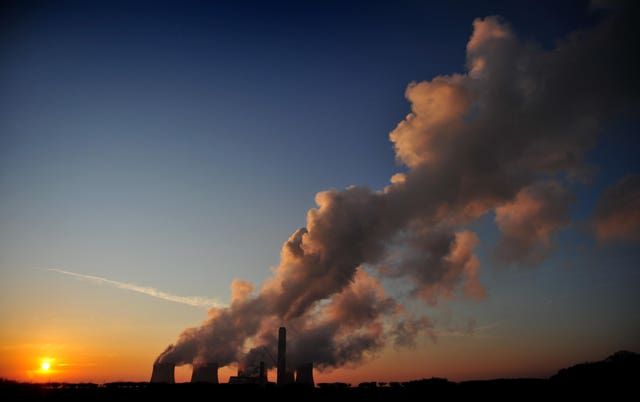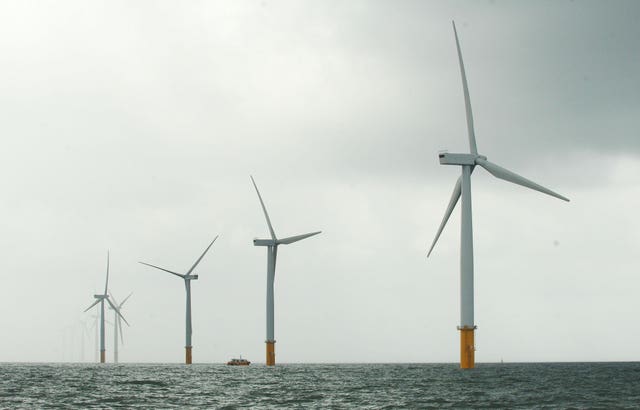More than seven in 10 Scots back drilling in the North Sea to reduce the country’s reliance on foreign imports, a survey has found.
The poll, carried out by Survation on behalf of consultancy firm True North, found people in Scotland would rather their energy needs be met domestically than from abroad.
The UK has become increasingly reliant on overseas oil and gas imports with around two-fifths of the nation’s energy needs being met by imports, down from the early 2010s but up from the 1990s.
The United States, Norway, Qatar and Peru are among the largest sellers of fossil fuels to the UK.
The Survation survey, which polled 1,024 people between January 7 and 13, also found only 24% of Scots believe the windfall tax on energy companies has helped reduce household bills.

Just over a quarter (26%) think the policy is effective at encouraging firms to move to renewables.
It was first introduced under the Conservative Westminster government and extended under Labour.
The Energy Profits Levy applied an extra tax on windfall profits, which came at a time when energy bills for consumers were surging while energy firms were recording record profits.
The UK Government has also pledged to deliver 95% of power by clean energy by 2030.
According to Survation, only 35% of respondents feel the target is achievable.
However, a majority (53%) said they back the clean power goal while 60% said they support the building of new transmission infrastructure, such as pylons, to support it.
True North senior energy adviser Allister Thomas said: “A shift away from oil and gas is inevitable – and crucial – but failing to carry out a managed transition risks seeing the UK importing more at a higher carbon footprint, while losing jobs and harming investment.
“As this polling suggests, it makes more sense to ramp up renewables while also pursuing policies to harness the UK’s oil and gas resources as they continue to play a crucial role in our energy mix, protecting jobs and mitigating imports in the meantime.

“Labour will be pleased to see strong backing for its clean power 2030 ambition and build-out of infrastructure such as new pylons.
“However, there’s considerable scepticism around whether that herculean task can be achieved within a short time-frame. Recent blackout concerns due to our reliance on weather-based generation show just how far there is to go.”
Russell Borthwick, chief executive of the Aberdeen and Grampian Chamber of Commerce, said: “A common sense approach to energy policy has been sorely lacking when it comes to our oil and gas resources and the vital energy supply chains which sustain them.
“To deliver a managed transition we should ensure these national assets are protected, starting with the removal of the punitive windfall tax which continues to have a chilling effect on investment.
“Clean power 2030 holds promise for north-east Scotland, at the heart of one of the world’s largest offshore wind markets, but we must be realistic about the major challenges we face.
“Huge ramp up of grid connection and transmission networks, cutting of planning and consent red tape, and delivery of a strong pipeline of projects are among the hurdles we must overcome to realise success.”
Rosie Hampton, a campaigner at Friends of the Earth Scotland, said: “It’s hardly surprising that greedy oil companies and their well-paid lobbyists want to keep us trapped in this rigged fossil fuel energy system that has driven the cost-of-living crisis and is dangerously heating our planet.
“It is absolutely shameless that as Los Angeles burns and devastating storms hit the UK, oil majors are refusing to invest in renewables and instead keep on drilling and burning their way to climate catastrophe.
“Fossil fuels from anywhere are a threat to people everywhere.
“We need a rapid and fair transition to publicly-owned renewable energy, which is already cheaper than fossil fuels, because the longer we are delayed, the more our energy bills skyrocket and the greater danger we are all in.”
Tessa Khan, executive director at environmental campaign group Uplift, said: “Of course people want the UK to be more energy independent, but we won’t get there by drilling for more oil and gas.
“When it comes to gas, the reality is that the UK has burnt most of its reserves and the oil that remains is mainly exported and sold on the international market, doing nothing to lower energy bills or increase energy security here in the UK.
The overwhelming majority of the Scottish public see renewables and energy efficiency measures as the way to achieve an affordable and secure energy supply in the long-term. Polling also shows that three-quarters of Scottish business leaders think that transitioning away from oil and gas is in the public interest and support a ban on new licensing.
“The UK has some of the world’s best resources for wind power, providing a huge opportunity to deliver homegrown clean energy that makes it straight back to our grid. Not only does this reveal a genuine path to energy independence, but job creation too.
“Successive governments have failed to grasp this opportunity, but the right approach could spark the production of a domestic wind manufacturing industry, providing up to 10,000 jobs in areas that are already experiencing oil and gas decline across the UK.”
A spokesperson for the UK Department for Energy Security and Net Zero said: “Our mission for clean power by 2030 will replace our dependency on unstable fossil fuel markets with clean, homegrown power controlled in Britain – which is the best way to protect billpayers and boost our energy independence.
“Britain’s total demand for gas will decline over time as we access more renewable generation, and our Clean Power Action Plan provides the foundation for the UK to build an energy system that can bring down bills for households and businesses for good.
“The best way to secure Scotland’s energy economy is to invest in the clean power transition.
“That is why it is at the forefront of our drive towards net zero and clean energy, with Great British Energy’s headquarters to be located in Aberdeen.”













